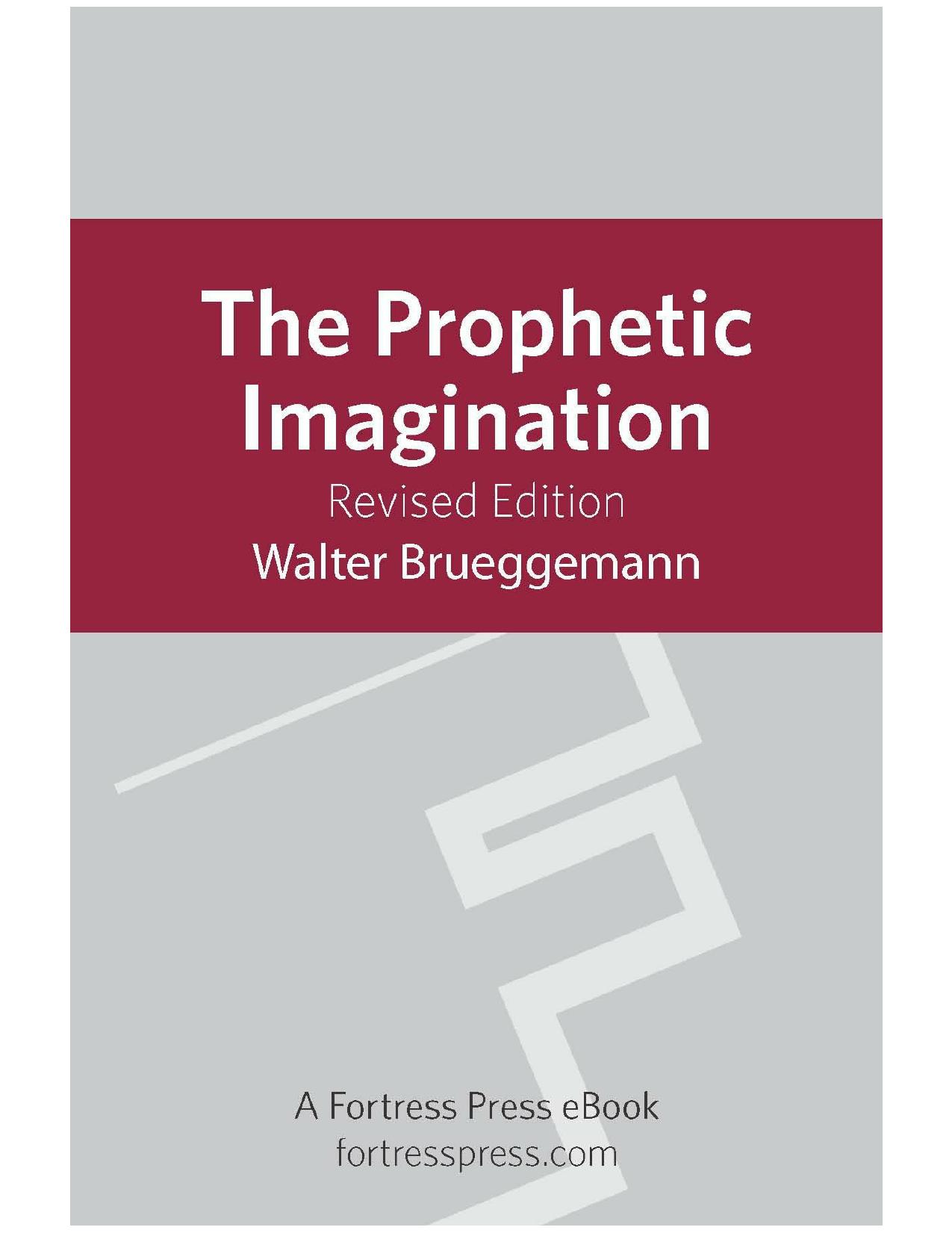The Prophetic Imagination by Walter Brueggemann

Author:Walter Brueggemann [Brueggemann, Walter]
Language: eng
Format: epub, pdf
ISBN: 978-1-5064-4931-9
Publisher: Fortress Press
Published: 2018-06-28T16:00:00+00:00
Hope and Yearning
The task of prophetic imagination and ministry is to bring to public expression those very hopes and yearnings that have been denied so long and suppressed so deeply that we no longer know they are there.[6] Hope, on the one hand, is an absurdity too embarrassing to speak about, for it flies in the face of all those claims we have been told are facts. Hope is the refusal to accept the reading of reality which is the majority opinion; and one does that only at great political and existential risk. On the other hand, hope is subversive, for it limits the grandiose pretension of the present,[7] daring to announce that the present to which we have all made commitments is now called into question. Thus the exilic community lacked the tools of hope. The language of hope and the ethos of amazement have been partly forfeited because they are an embarrassment. The language of hope and the ethos of amazement have been partly squelched because they are a threat.
It is mind-boggling to think of the public expression of hope as a way of subverting the dominant royal embrace of despair. I am not talking about optimism or development or evolutionary advances but rather about promises made by one who stands distant from us and over against us but remarkably for us. Speech about hope cannot be explanatory and scientifically argumentative; rather, it must be lyrical in the sense that it touches the hopeless person at many different points. More than that, however, speech about hope must be primally theological, which is to say that it must be in the language of covenant between a personal God and a community. Promise belongs to the world of trusting speech and faithful listening. It will not be reduced to the âcoolâ language of philosophy or the private discourse of psychology. It will finally be about God and us, about his faithfulness that vetoes our faithlessness. Those who would be prophetic will need to embrace that absurd practice and that subversive activity.
The urging to bring hope to public expression is based on a conviction about believing folks. It is premised on the capacity to evoke and bring to expression the hope that is within us (see 1 Pet 3:15). It is there within and among us, for we are ordained of God to be people of hope. It is there by virtue of our being in the image of the promissory God. It is sealed there in the sacrament of baptism. It is dramatized in the Eucharistââuntil he come.â It is the structure of every creed that ends by trusting in Godâs promises. Hope is the decision to which God invites Israel, a decision against despair, against permanent consignment to chaos (Isa 45:18), oppression, barrenness, and exile.
Hope is the primary prophetic idiom not because of the general dynamic of history or because of the signs of the times but because the prophet speaks to a people who, willy-nilly, are Godâs people.
Download
The Prophetic Imagination by Walter Brueggemann.pdf
This site does not store any files on its server. We only index and link to content provided by other sites. Please contact the content providers to delete copyright contents if any and email us, we'll remove relevant links or contents immediately.
Hebrews, James by George H. Guthrie & George H. Guthrie(454)
Ideology by Eagleton Terry;(447)
Israel: Ancient Kingdom or Late Invention? by Daniel I. Block(443)
The 9.9 Percent by Matthew Stewart(425)
Take Back Your Time by Christy Wright(413)
The New Oxford Annotated Bible with Apocrypha by unknow(412)
Eating the Bible by Rena Rossner(406)
Insights on Hebrews by Charles R. Swindoll(404)
The Book Every Leader Needs to Read by 48 Authors(398)
Psalms, Proverbs, Ecclesiastes, and Song of Songs by John W. Hilber & Tremper Longman III & Duane Garrett(371)
Commentary on the Torah by Richard Elliott Friedman(347)
Commentary on James (Commentary on the New Testament Book #16) by Robert H. Gundry(346)
Judges: Volume Two by unknow(340)
The Jew in the Lotus by Rodger Kamenetz(339)
Who Wrote the Bible? by Richard Elliott Friedman(336)
NKJV, Ignite, eBook by Thomas Nelson(332)
Job, Ecclesiastes, Song of Songs by August H. Konkel & Tremper Longman III(329)
Proverbs, Ecclesiastes, Song of Solomon (Ancient Christian Commentary on Scripture) by J. Robert Wright(325)
Reading the Bible with Rabbi Jesus by Tverberg Lois(309)
